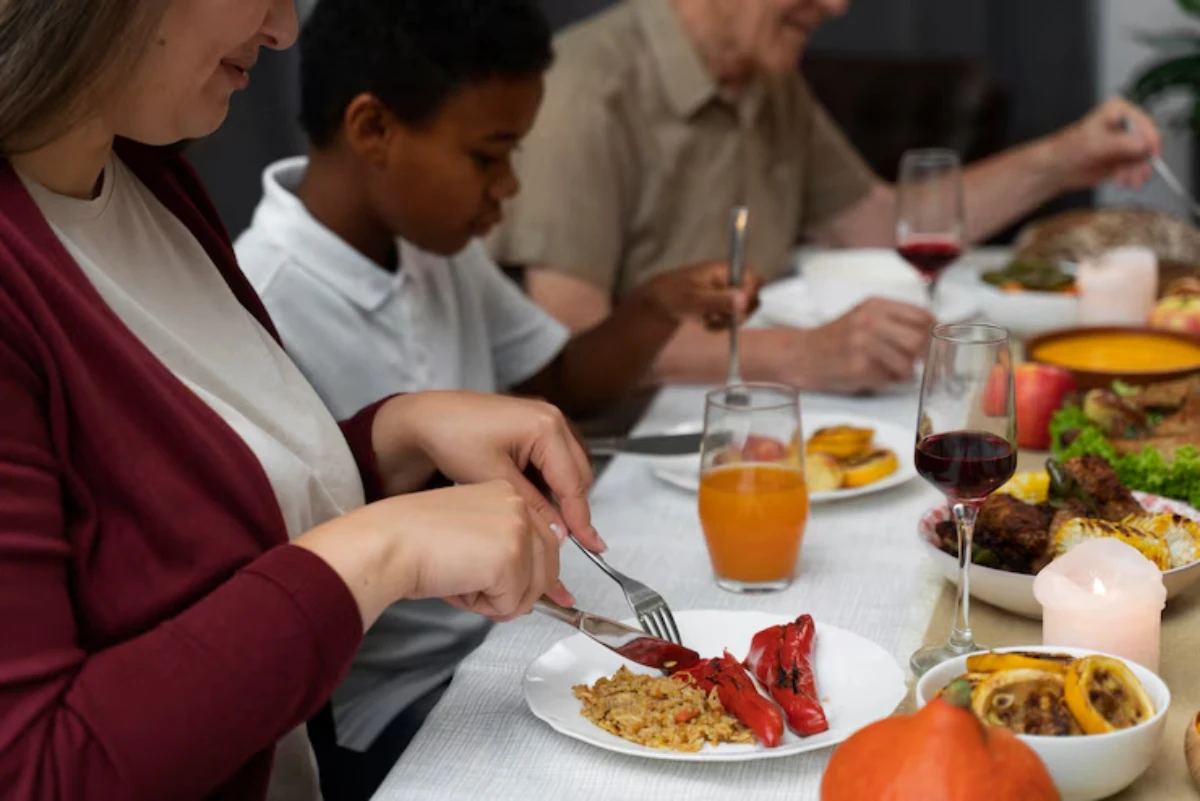
Managing Social Events While Fasting
Can You Really Stick to Fasting and Still Be Social?
You’re invited to a dinner party. Drinks at seven, starters at eight. The trouble? You’re in the middle of your fasting window. Do you politely pass on the invitation, or go and risk breaking your streak?
This is a common dilemma for anyone practising intermittent fasting. Whether it’s birthdays, family dinners, weddings, or after-work drinks, social events often revolve around food and drink, often outside of your planned eating window.
But here’s the thing: you don’t have to choose between your fasting lifestyle and your social life. With a little forethought and flexibility, you can navigate almost any event with confidence—and even enjoy it.
In this article, we’ll discuss how to manage social events while fasting, from dining out to dealing with peer pressure. We’ll explore strategies to stay consistent without feeling awkward or restricted and share practical tips that let you enjoy real life while staying true to your health goals.

Why Social Situations Can Be Fasting Traps
Food Is Social by Nature
Humans bond over food. From celebratory cakes to pub lunches, sharing meals is how we connect. So when you’re fasting, it can feel like you’re stepping out of sync with everyone else.
Peer Pressure and Politeness
“No thanks, I’m fasting.” Sometimes that’s all it takes. Other times, you’ll be met with raised eyebrows or questions like “One bite won’t hurt, right?” or “Are you on a diet?”
These moments can make it harder to stick to your plan, especially when you want to avoid being the ‘difficult guest’.
Irregular Timings and Long Evenings
Events often stretch across several hours, with food and drink scattered throughout. This can mess with your fasting rhythm or tempt you into snacking mindlessly.
If you often forget to hydrate, especially during social events, these hydration strategies while fasting can help keep you sharp and energised.
Key Mindset Shifts That Make Social Fasting Easier
1. Flexibility Is Not Failure
Intermittent fasting is meant to support your life, not dominate it. If a special occasion means adjusting your window, that’s completely fine. One night of flexibility won’t undo months of consistency.
You can either shift your fasting schedule for the day or fast longer the next day. What matters most is your long-term commitment, not short-term perfection.
2. Choose Connection Over Control
You’re there to connect, not count hours. Sometimes, the right choice for your well-being is to enjoy a shared meal with loved ones—even if it means bending your schedule. There’s no shame in that.
Smart Strategies for Navigating Events
Plan Your Window Around the Event
If you know dinner starts at 7 PM, start your eating window later that day—say 1–9 PM instead of 12–8 PM. That way, you stay within your 8-hour window and enjoy the evening without guilt.
This technique works especially well with a 16:8 schedule, which offers enough flexibility for most events.
Have a Balanced Meal Before You Go
If you won’t be eating at the event (e.g. during a 24-hour fast), make sure your last meal.
- High in protein to keep you full
- Rich in healthy fats and fibre to slow digestion
- Hydrating with plenty of water or herbal tea
This makes it easier to say no to hors d’oeuvres or sugary drinks without feeling deprived.
Handling Food-Centric Gatherings Without the Stress
What to Say When You’re Not Eating
You don’t owe anyone a deep explanation, but having a go-to phrase helps.
- “I’m doing a timed eating routine, I’ll join you later.”
- “I’m not eating right now, but everything looks amazing.”
- “I’m focusing on hydration at the moment—cheers!”
Most people will accept your choice and move on. Some may even get curious and want to know more.
Join the Experience Without the Plate
Just because you’re not eating doesn’t mean you can’t participate.
- Engage in conversation
- Help serve or plate up
- Compliment the food
- Enjoy drinks like sparkling water, black coffee, or herbal tea
This shows you’re present and involved, without feeling awkward about your fasting.
Dining Out: Your Fasting-Friendly Playbook
When eating out falls during your eating window, here’s how to make it count.

- Choose protein-forward meals — legumes, grilled fish, chicken, tofu
- Load up on vegetables — they’re nutrient-rich and filling
- Watch the sauces — they often contain hidden sugars
- Limit the bread basket — especially if it fills you up before your main
If you’re fasting through the meal, order a drink like sparkling water with lemon or a peppermint tea to keep your hands occupied and your digestive system happy.
How to Deal With Alcohol at Events
Fasting and alcohol don’t mix well, especially on an empty stomach. If you’re attending a social where drinks are flowing.
- Break your fast first with a protein-rich snack
- Drink water between alcoholic drinks
- Stick to dry wines or spirits with soda over sugary mixers
- Avoid drinking during fasting hours, especially on an empty stomach—it can spike blood sugar and make you feel worse
Special Occasions and Holidays: When to Bend the Rules
Birthdays, weddings, and anniversaries—these are the moments when you might want to relax your routine.
And guess what? That’s okay.
If you’ve been fasting consistently for weeks or months, one evening of indulgence won’t derail your progress. What matters is what you do after:
- Return to your schedule the next day
- Stay hydrated
- Don’t “punish” yourself — just resume your rhythm with grace
For guidance on what to eat after a fasting break, explore our tips on breaking your fast with the right foods.
Real-Life Example: How Anika Balanced Fasting With Her Social Life
Anika, 41, is a teacher from Bristol who’s been practising intermittent fasting for a year. While weekdays were easy, she struggled with dinner parties and family lunches on weekends.
“I realised that being rigid made me anxious. Now I shift my window on weekends, and if I eat late one night, I just fast a bit longer the next morning. It’s become second nature.”
Her approach? Consistency over time, with flexibility when it counts.
Conclusion: You Don’t Have to Choose Between Fasting and Friendship
Intermittent fasting doesn’t need to be isolating. In fact, with the right mindset and some practical adjustments, you can stick to your fasting goals without sacrificing your social life.
It’s not about dodging every dinner invitation or bringing Tupperware to weddings. It’s about knowing when to hold your boundary—and when to let go.
By planning ahead, staying hydrated, communicating with confidence, and showing yourself some grace, you can enjoy the best of both worlds: health and connection.
Next time you RSVP “yes,” do it knowing your fasting journey is still very much on track.


